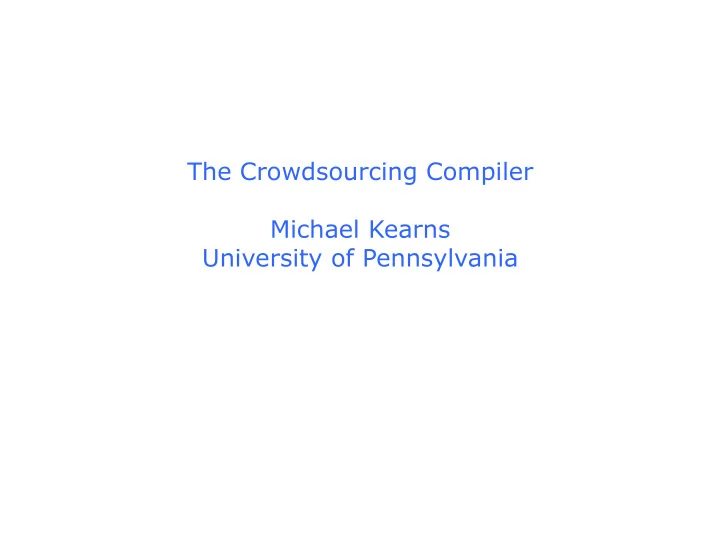

The Crowdsourcing Compiler Michael Kearns University of Pennsylvania
modern programming specify broad control and data structures • don’t worry about: • – memory management/allocation/reuse – primary/secondary/tertiary – loop optimization – parallelization, cluster management don’t need to know much about how computers “really” work •
imagine a high-level programming language… much like those of today • but with built-in functionality for social computation • e.g classifying objects, making predictions/decisions, optimization/search • perhaps even in the physical world (e.g. taskrabbit, uber) •
…whose compiler would decide: human or machine? • sequential or parallel? • incentives: payment (subject to budget), entertainment, prestige, purpose,… • individuals or groups? • structure, organization, communication • coverage/overlap • toy problem: collective short-term memorization • sample instantiation: Emery Berger’s AutoMan at UMass; others? •
hard questions what should the “components” look like? • what should their “operating characteristics” or specs look like? • will heterogeneity of “hardware” kill this whole idea? • is the whole idea just too creepy to contemplate? •
Recommend
More recommend